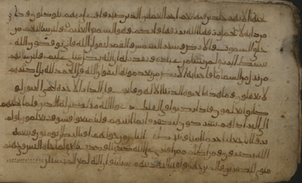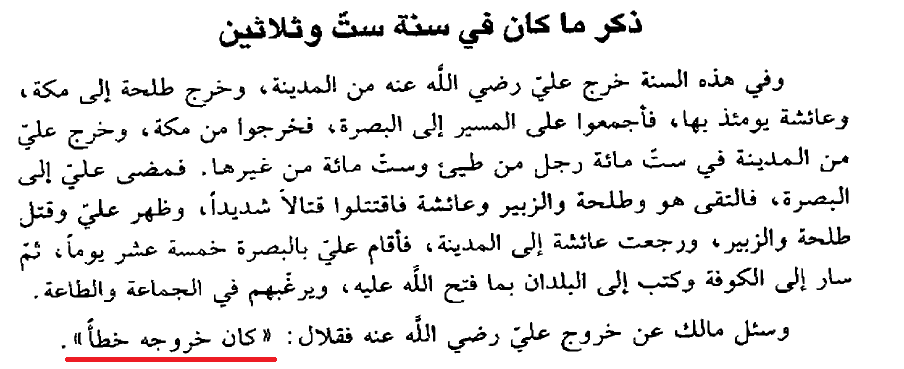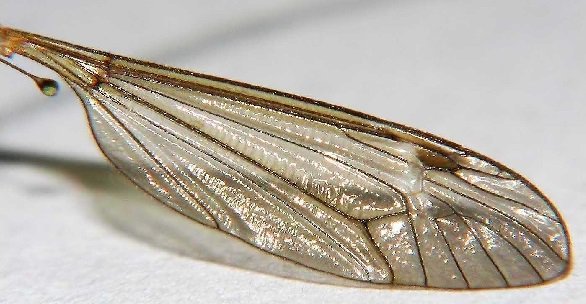
How to get URL link on X (Twitter) App


 Ibn Hishām did not just transmit Ibn Isḥāq’s original work as received but edited it first.
Ibn Hishām did not just transmit Ibn Isḥāq’s original work as received but edited it first. 

 In an auto-biographical note, the Syrian Imam al-Awzāʿī (b. 88; d. 157), recounts how as an orphan he was taken in by a benefactor who brought him up and managed to enroll him in the Umayyad dīwān al-rasāʾil (department of letters) where he began his career as a scribe.
In an auto-biographical note, the Syrian Imam al-Awzāʿī (b. 88; d. 157), recounts how as an orphan he was taken in by a benefactor who brought him up and managed to enroll him in the Umayyad dīwān al-rasāʾil (department of letters) where he began his career as a scribe. 

 together with the late Martin Hinds, of the true significance of imāma in early Islam.
together with the late Martin Hinds, of the true significance of imāma in early Islam.

 In a report, the early Medinan scholar and Imam, Muḥammad al-Bāqir (d. 114), is quoted as saying:
In a report, the early Medinan scholar and Imam, Muḥammad al-Bāqir (d. 114), is quoted as saying: 

 Since 1 good deed has the reward of 10, the reward of fasting for 1 month of Ramaḍān (30 days) will be equivalent to fasting for 10 months (300 days), adding 6 days to this will cover the remaining 2 months (60 days). 360 is the number of days in the traditional Arabic year.
Since 1 good deed has the reward of 10, the reward of fasting for 1 month of Ramaḍān (30 days) will be equivalent to fasting for 10 months (300 days), adding 6 days to this will cover the remaining 2 months (60 days). 360 is the number of days in the traditional Arabic year.

 In fact, Mālik says that the scholars considered it makrūh, fearing that it would become a bidʿa (innovation) and that the ignorant “would join to Ramaḍān what does not belong to it” if they saw the scholars practising that.
In fact, Mālik says that the scholars considered it makrūh, fearing that it would become a bidʿa (innovation) and that the ignorant “would join to Ramaḍān what does not belong to it” if they saw the scholars practising that.

 Shuʿayb al-Arnaʾūṭ, the well-known annotator of Musnad Aḥmad, grades this report as Ṣaḥīḥ.
Shuʿayb al-Arnaʾūṭ, the well-known annotator of Musnad Aḥmad, grades this report as Ṣaḥīḥ. 

 The companion in question, Ḥasan al-Ṣayqal, narrates how al-Ṣādiq once asked him: “Do you want me to show you the shirt of ʿAlī in which he was struck and show you his blood?”
The companion in question, Ḥasan al-Ṣayqal, narrates how al-Ṣādiq once asked him: “Do you want me to show you the shirt of ʿAlī in which he was struck and show you his blood?”
 “Whatever comes to you on my authority then review it against the Qur’an, so if it agrees with it (i.e. the Qur’an) then I said it, and if it opposes it than I never said it”
“Whatever comes to you on my authority then review it against the Qur’an, so if it agrees with it (i.e. the Qur’an) then I said it, and if it opposes it than I never said it” 

 ... that the phrase ḥayya ʿalā khayr al-ʿamal was part of the original Adhān.
... that the phrase ḥayya ʿalā khayr al-ʿamal was part of the original Adhān.



 Consider the following example:
Consider the following example:




 This is corroborated in Twelver Shīʿī Hadith sources wherein al-Ṣādiq is quoted as specifying the same three nights as possible candidates.
This is corroborated in Twelver Shīʿī Hadith sources wherein al-Ṣādiq is quoted as specifying the same three nights as possible candidates. 

 As for Mālik himself, it is recorded that he deemed ʿAlī’s departure from Medina and his relocation to Kufa in order to fight his opponents a ‘mistake’.
As for Mālik himself, it is recorded that he deemed ʿAlī’s departure from Medina and his relocation to Kufa in order to fight his opponents a ‘mistake’. 

 Ismāʿīl does seek out Ibn Jurayj and the latter dictates to him a number of Hadith affirming Mutʿa’s permissibility before providing specific rulings on how it is to be performed, for e.g. there is no restriction to the number of partners who can be contracted at the same time.
Ismāʿīl does seek out Ibn Jurayj and the latter dictates to him a number of Hadith affirming Mutʿa’s permissibility before providing specific rulings on how it is to be performed, for e.g. there is no restriction to the number of partners who can be contracted at the same time.


 He (i.e. Imam) said, ‘O Fuḍayl, I many a time say that there is nothing (to fear) for a man to whom Allah has made this affair known (i.e. the Wilāya) if he were to be (living all alone) on the summit of a mountain until death comes to him.
He (i.e. Imam) said, ‘O Fuḍayl, I many a time say that there is nothing (to fear) for a man to whom Allah has made this affair known (i.e. the Wilāya) if he were to be (living all alone) on the summit of a mountain until death comes to him.